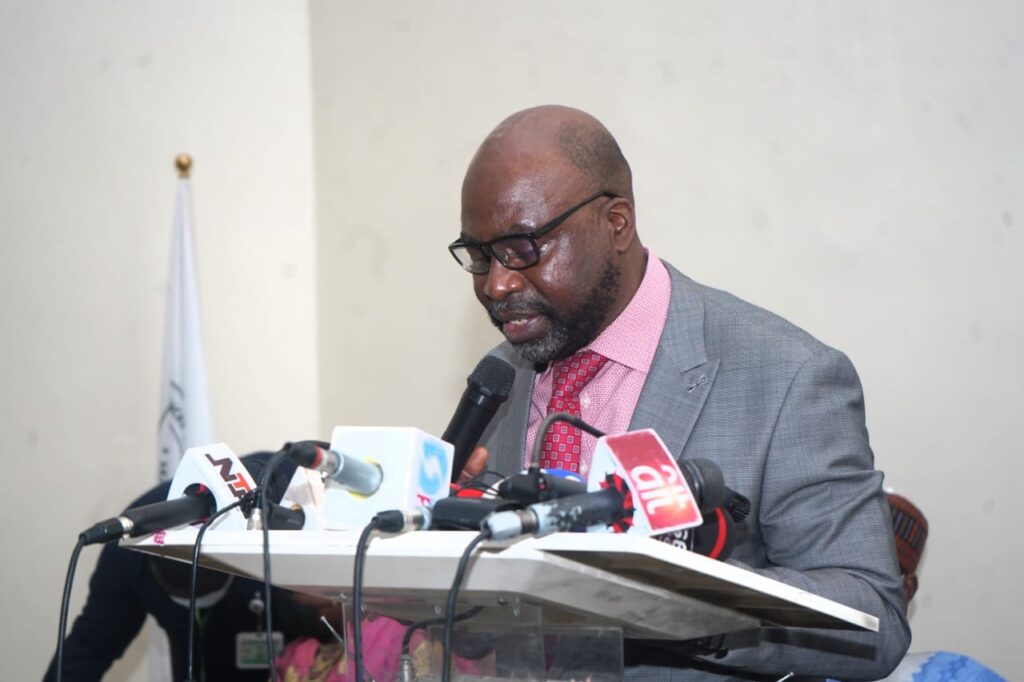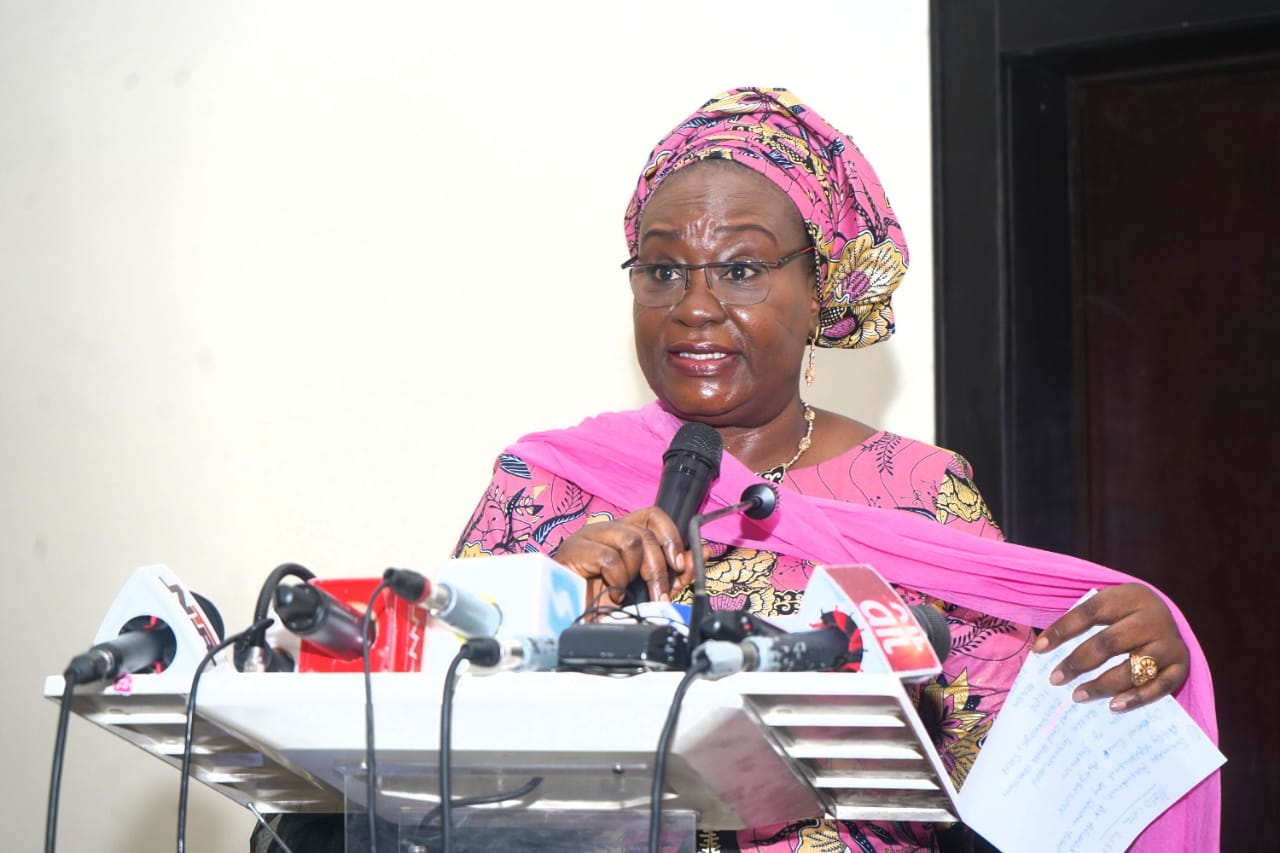….It is wrong to recruit anybody that is less of his or herself – Aregbesola
…..Govt suspends salaries of over 3000 Civil Servants – Dr. Yemi-Esan
The Chairman of the Independent Corrupt Practices and Other Related Offences Commission (ICPC), Professor Bolaji Owasanoye, SAN has identified lack of transparency as a major factor fuelling indiscriminate recruitments in the public service.
The ICPC boss stated this recently at a Policy Dialogue on “Entrenching Transparency in Public Service Recruitment Process in Nigeria” organised by the Anti-Corruption Academy of Nigeria (ACAN), the research and training arm of ICPC.
Professor Owasanoye noted that indiscriminate recruitment in the public service has impacted negatively so much that government’s wage bill continued “to rise geometrically almost doubling between 2015 and 2022 from N1.832trn in 2015 to N3.494trn in 2022.”
He added that the Commission has received almost 100 petitions on recruitment scam from victim institutions and complicit individuals saying that the situation festers due to lack of transparency.
The ICPC boss also disclosed that another aspect of recruitment scandals in the civil service was associated with the problem of fake certificates which has compounded “the bad situation now made worse.”
He opined that “the meritocratic tradition in the public service which existed to some degree up to the 1980s in our country was gradually disappearing with very few islands of recruitment integrity only remaining…” saying the scourge was a matter of grave concern that needed to be critically and objectively examined.
“The expectation here is that this Policy Dialogue session made up of experienced, knowledgeable and diverse stakeholder groups across official and non-official divide would offer a more dispassionate look at this problem which is almost becoming endemic.
“This endemic feature is not surprising because its driving forces include desperation for stable employment that the public service offers, the abject lack of scrutiny and laxity of the public service employment process, endemic perception of commercialization of service delivery by graft and gratification and systemic corruption.” he said.
On his part, the representative of the Senate President, Senator Yusuf Abubakar Yusuf, called for effective collaboration between ICPC and the Federal Character Commission (FCC) to ensure fair representation of all the states of the Federation in the Civil Service.
Delivering a goodwill message, the Minister of Interior, Ogbeni Rauf Aregbesola noted that there was no justification for recruiting anybody that is less of his or herself in terms of qualifications and experience into the Civil Service just as he praised ICPC for taking the lead in the entrenchment of integrity and transparency in the Public Service.
“ICPC has carved a niche for itself as one of the agencies of government that have carried the transparency and integrity crusade of the government on their shoulders, and it has continued to shine like a bright star in that mission.
“This dialogue on entrenching transparency in public service recruitment is therefore typical of an agency that is not just fighting corruption but has taken engagement of the civil society to be equally important. Entrenching transparency in recruitment must emanate from a philosophy. At the heart of this philosophy are the questions of what task was to be done and who should do it”, the Minister said.
In her keynote address, the Head of the Civil Service of the Federation, Dr. Folashade Yemi-Esan noted that the country’s unemployment problem has left job seekers at the mercy of unscrupulous elements who extort and defraud them by exploiting their very desperate conditions.
While disclosing the initiatives deplored by the Federal Government to ensure transparent recruitment processes, Dr. Yemi-Esan informed participants that over 5,000 persons in various MDAs in possession of fake letters of appointment were recently discovered and have been weeded out of the service.
She added, “similarly, following the outcome of the Service-Wide Verification Exercise for officers recruited from 2013 – 2020, the Federal Civil Service Commission has also requested the suspension of the salaries of over 3,000 officers across the MDAs who failed to appear for the exercise pending further clearance.
“The Administration, through the Office of the Head of the Civil Service of the Federation, has taken decisive steps to nip in the bud, the alarming sharp practices and acts of impunity being perpetrated on the IPPIS, as well as to purge the system of all infiltrations”, she said.
Also speaking at the Policy Dialogue, the Chairman of the Federal Civil Service Commission, Dr. Tukur Bello Ingawa, called for punitive actions against those found culpable in job racketeering.
“I think there must be punitive measures, people should not just get away with all these. Those involved in job racketeering should not be spared but punished.
“The second thing I need to suggest is that ICPC should do a system study of the public sector organisations (involved in recruitments) and I feel that aspect of ICPC’s mandate will go a long way in combating the menace”, Dr. Ingawa advised.
In his goodwill message, the former Inspector-General of Police, and a member of the Police Service Commission, Mr. Musiliu Smith urged the elites and political office holders to resist the pressure of using their positions to influence recruitment exercises to favour their kins and loyalists.
Earlier in his welcome address, the Provost of the Anti-corruption Academy of Nigeria (ACAN), Professor Olatunde Babawale stated that the Policy Dialogue was organised in the context of broader institutional goals such as those prescribed by the National Anti-Corruption Strategy (NACS), 2017.
“Today’s Dialogue seeks to further the sub-objective of the NACS, which is to “institute more transparent, merit-based recruitment processes”. Although this objective of the NACS relates particularly to anti-corruption and law enforcement agencies, its importance resonates throughout the public service.
Professor Babawale who expressed that recruitment into the public service was a matter of interest to all Nigerians particularly young Nigerians who make up a significant percentage of the country’s population said “despite the various rules and legislation relating to public service recruitment, there is considerable dissatisfaction with the apparent lack of transparency in public service recruitment.”
He disclosed that while the scope of the Dialogue was limited to the entrenchment of transparency in the process, it was expected that the views and contributions from experts and participants would cover the broad spectrum of academia, civil society, organised labour, public service and the private sector.
The One-Day Policy Dialogue was attended by various representatives of key Ministries, Departments and Agencies (MDAs), organised labour and private sector stakeholders in the country.


